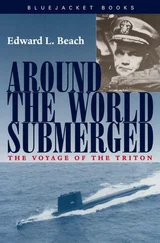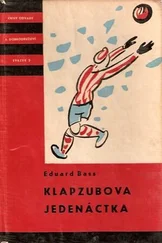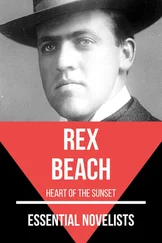Edward Beach - An Annapolis First Classman
Здесь есть возможность читать онлайн «Edward Beach - An Annapolis First Classman» — ознакомительный отрывок электронной книги совершенно бесплатно, а после прочтения отрывка купить полную версию. В некоторых случаях можно слушать аудио, скачать через торрент в формате fb2 и присутствует краткое содержание. Жанр: foreign_antique, foreign_prose, foreign_children, на английском языке. Описание произведения, (предисловие) а так же отзывы посетителей доступны на портале библиотеки ЛибКат.
- Название:An Annapolis First Classman
- Автор:
- Жанр:
- Год:неизвестен
- ISBN:нет данных
- Рейтинг книги:5 / 5. Голосов: 1
-
Избранное:Добавить в избранное
- Отзывы:
-
Ваша оценка:
- 100
- 1
- 2
- 3
- 4
- 5
An Annapolis First Classman: краткое содержание, описание и аннотация
Предлагаем к чтению аннотацию, описание, краткое содержание или предисловие (зависит от того, что написал сам автор книги «An Annapolis First Classman»). Если вы не нашли необходимую информацию о книге — напишите в комментариях, мы постараемся отыскать её.
An Annapolis First Classman — читать онлайн ознакомительный отрывок
Ниже представлен текст книги, разбитый по страницам. Система сохранения места последней прочитанной страницы, позволяет с удобством читать онлайн бесплатно книгу «An Annapolis First Classman», без необходимости каждый раз заново искать на чём Вы остановились. Поставьте закладку, и сможете в любой момент перейти на страницу, на которой закончили чтение.
Интервал:
Закладка:
Robert Drake realized all this; what midshipman does not who has been at the Naval Academy for three years? And now came to him, as comes to all cadet officers, a determination to do his part with all the ability he possessed. He was indeed happy to be cadet lieutenant, and was proud of the three stripes on each sleeve that indicated that rank. As cadet lieutenant he had many daily routine inspections and reports to make and was assisted in these by two cadet officers, a cadet junior lieutenant and a cadet ensign, and by eight petty officers, a number of the latter being second classmen.
"Well, Stone," Robert remarked as they commenced their studies, "I certainly have a busy eight months cut out for me. Just look at these formidable lessons assigned us for to-morrow. Here are twenty pages in seamanship, and about the same amount in gunnery and in electricity. We've got an awful lot to do this year in steam engineering, and look at those five hundred pages in navigation. Whew! I don't see how we're going to do it well. Then I'm sure to be constantly busy with my company duties; this ought to be enough, but on top of this is an hour and a half's drill each day, and after that, football till it is too dark to see. Jimmini! If we get more than a smattering out of those books I'll be surprised. And you'll be busy too; you're editor of the 'Lucky Bag' 1 1 Each year the senior class publishes a book called "The Lucky Bag," which is illustrative of midshipman life.
and chairman of the hop committee!"
"Yes, we'll have no spare minutes," replied Stonewell. "Let's get to work."
The next morning, as the gunnery recitation commenced, the instructor, Lieutenant Clement, said: "Gentlemen, your theoretical book work has been all planned, and by looking through your ordnance and gunnery books you can see just what it will be. For practical work during winter drill periods we will take torpedo mechanisms apart and put them together, and we'll go aboard the monitor 'Nevada' and study her turret and her guns. In the last of May a crew of first classmen from each company will go out into the bay and will fire at a regulation target with the 'Nevada's' six-pounder guns under the regular target practice conditions. Each company six-pounder crew may practice as much as it can find time to with the six-pounder gun in the armory gun shed. The head of the department instructs me to tell you that you are encouraged to make any devices or innovations so long as the gun is in no way disabled, though any suggested change must be submitted to him before firing the gun. The record made in gun-firing is entirely competitive. The crew making the best record will do a good deal toward winning the flag for the company it belongs to; a poor record will certainly defeat any such chance. Now we will proceed to our day's lesson in ballistics. Mr. Drake, take the first problem."
The drill assigned to the first company that afternoon was infantry. The drill call sounded after the last study period was over, and by four o'clock Robert was marching his company across lawns to the drill grounds. He marched them in columns of squads, changing to company front, and felt very important indeed in his position as company commander. Upon arrival at the drill grounds he ordered:
"Company – halt! Unfix bayonets. Stand at ease." Then, sheathing his sword he said: "Fellows, since I've been at the Academy the first company has always been among the best companies of the brigade. I want it to keep its reputation as such this year, and I'm sure you'll all have the same desire. The company had the honor of carrying the brigade colors a year ago, but it lost it last June by a narrow margin. You all know the company that has the best record for the year wins the flag, and carries it for the next year. The record is made up of many things, excellence in the various drills, excellence in the different forms of athletics, target practice, boat sailing, sharp-shooting, etc. Any man that does well individually in anything adds to his company's multiple and helps just that much. I'm going to do the very best I can to help win the flag for the first company. I take it for granted every one of you is with me and each will do his best for the same purpose. And we may be certain that each of the other eleven companies will do its utmost to win the colors." Bob paused.
"Company attention! Shoulder arms! Rear rank, fourth file, last squad, step to the front."
A diminutive midshipman, seemingly hardly five feet tall, but fat, happy and careless looking, assisted by some vehement whispered advice of the left guide, shambled awkwardly to the front of the company, with his rifle on his right shoulder.
"That chap over there said you meant me, mister," said the small midshipman, in an engaging manner.
"Salute," ordered Cadet Lieutenant Drake, severely.
"Certainly, mister," replied the young man, eagerly taking off his cap and bowing.
"Put on that cap. Don't you know the rifle salute? Have you had any drill? What's your name?"
"Reginald Mumma. These chaps call me Mama's Darling, mister; I wish you'd have it stopped."
"When did you enter the Academy?"
"A month ago, but I've been sick in the hospital; just got out yesterday."
"Third petty officer, fall out of line of file closers. Drill Mr. Mumma as a recruit every day this week, and whenever the company has infantry, till he can take his place in ranks. Squads right, full step, march."
CHAPTER V
A MYSTERIOUS CRY
The football season opened auspiciously for Annapolis. About fifty midshipmen were members of the football squad; these were excused from drills except on two afternoons of the week. Of those selected to play in regular games all were seasoned players, and except Bligh, all had played on the Naval Academy team the previous year. And so Stonewell and Robert and others were quite hopeful.
The head coach was Professor Danton, the field coach Gates, a famous old Yale player.
After several hard games on successive Wednesdays and Saturdays Stonewell was called into special consultation by Danton and Gates.
"Stonewell," began Gates, "I've been watching our team, and I'm convinced we have a fine lot of men here; not only good football players but real trustworthy chaps, men who will keep their promise, whose word can be depended upon."
"We don't want any other kind," replied Stonewell, thinking by Gates' manner that there was something in the wind.
"I've been trying to size up each man's character," continued Gates, "and I've decided to put personal trust in every one of them. But I will exact an individual promise of secrecy from every member of the squad for something I'm going to give them. The matter is this: I have devised a forward pass which if it isn't expected and is properly executed is practically certain to bring a touch-down to the team that works it. I've sent it to Yale, where it has been tried out in secret practice, and the people there are wild over it. I've told them I wanted to give it to the midshipmen. They don't like that idea, but it's my own play, and I can do so if I wish to. They've asked me, if I give it to the midshipmen, to take every precaution for secrecy and not to use it until after Yale plays Harvard. Annapolis plays West Point the same day that Yale meets Harvard, and you could work the trick against the soldiers. It's a beauty. Now what do you say, Stonewell?"
"We will most certainly agree to secrecy," replied Stonewell, much impressed. "I will get the individual promise you require from every member of the squad to observe entire secrecy about this play, and we'll never practice it except in secret practice and will never play it in a game until we meet West Point. Is that what you require?"
"Yes; I'll give it to you. We'll suppose our men have come down the field and are within an easy place-kick of the goal; we'll then make all preparations apparently for a goal from the field, and turn the play into a forward pass. We'll station our men as follows – " and a lot of technical football talk followed.
Читать дальшеИнтервал:
Закладка:
Похожие книги на «An Annapolis First Classman»
Представляем Вашему вниманию похожие книги на «An Annapolis First Classman» списком для выбора. Мы отобрали схожую по названию и смыслу литературу в надежде предоставить читателям больше вариантов отыскать новые, интересные, ещё непрочитанные произведения.
Обсуждение, отзывы о книге «An Annapolis First Classman» и просто собственные мнения читателей. Оставьте ваши комментарии, напишите, что Вы думаете о произведении, его смысле или главных героях. Укажите что конкретно понравилось, а что нет, и почему Вы так считаете.












